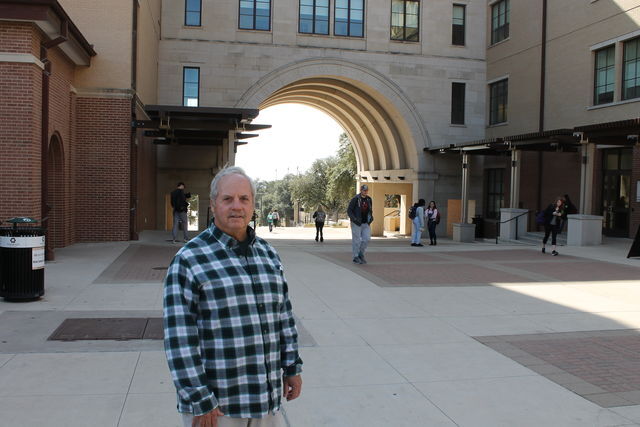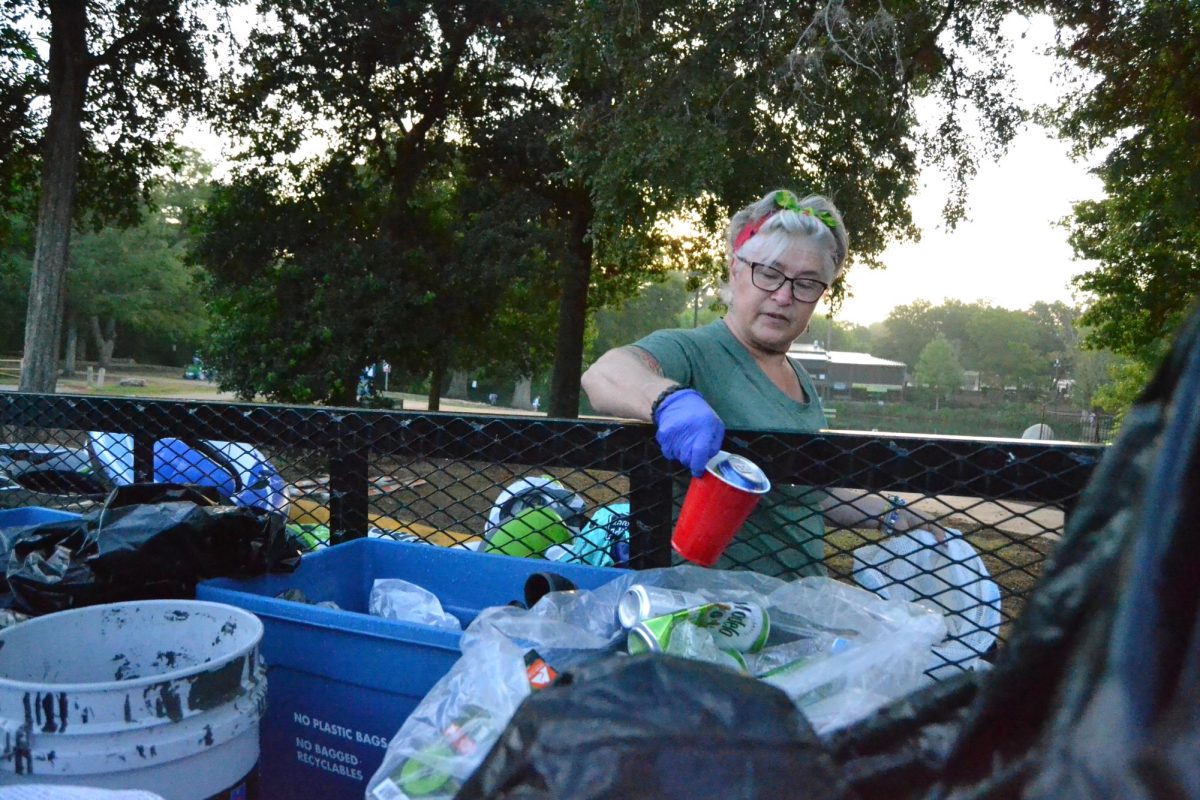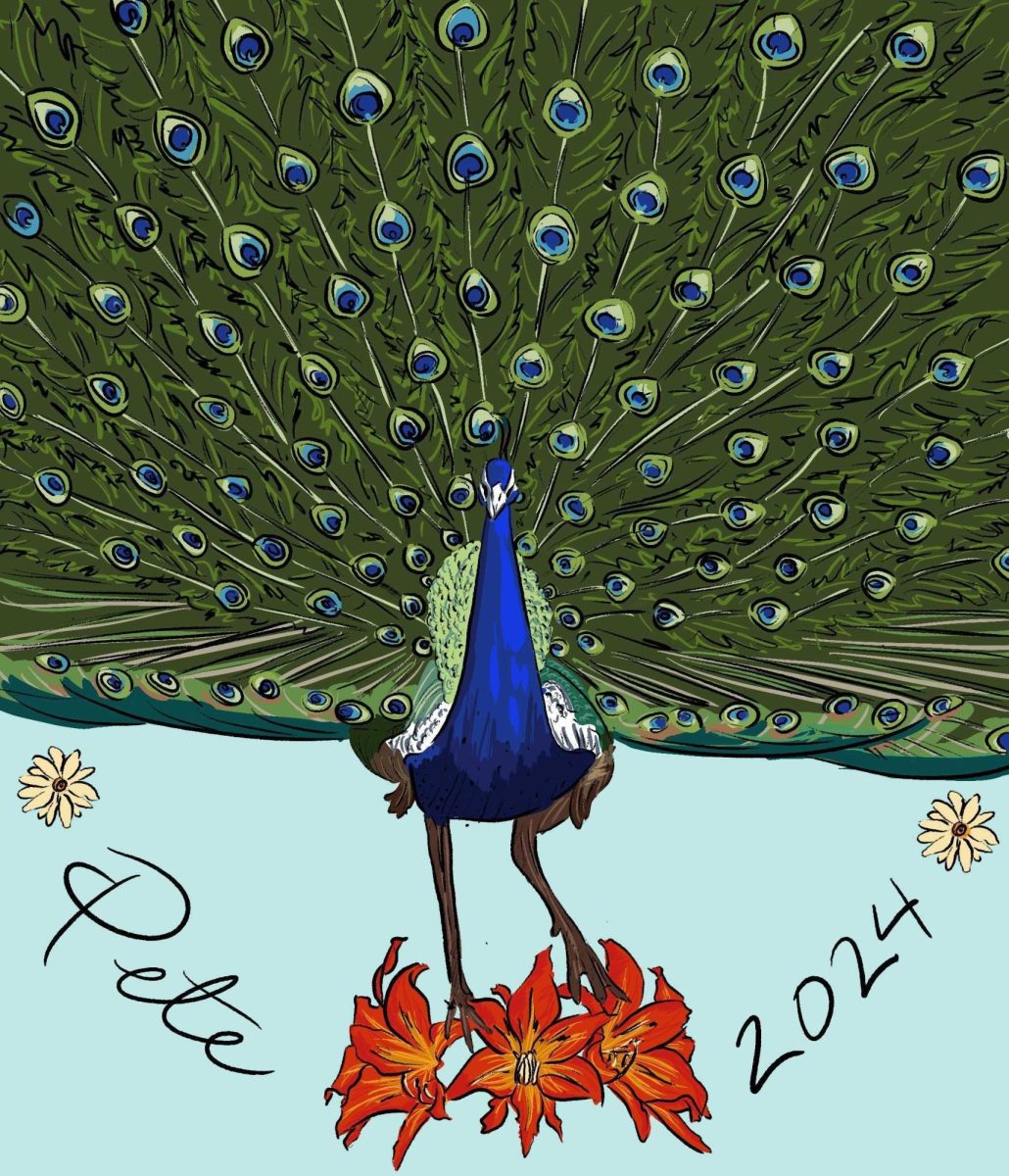Most people would not enjoy handling corpses at a decomposition site as part of their studies, but one former graduate student was more than ready to get his hands dirty.
James Fancher, Texas State alumnus, won the Conference of Southern Graduate Schools Outstanding Master’s Thesis Award for his work in forensic anthropology.
Francher also won the 2017–2018 Graduate College Outstanding Master’s Thesis Award in the Life Sciences from Texas State.
Fancher, a military veteran and part-time professor of dental hygiene at Austin Community College, recently went back to school to earn his master’s of Arts and Anthropology at Texas State.
Fancher created his master’s thesis titled, “Evaluation of Soil Chemistry in Human Decomposition Sites,” which he submitted to CSGS for review last fall. Fancher won the Texas State award in November 2017 and the CSGS in January 2018. With these wins, Texas State and Fancher were awarded $1,500. The money will go toward research and academics at Texas State.
Fancher’s thesis studied the soils of decomposed human bodies in order to determine the time or interval of death of the cadavers. He was able to conduct his research on campus at the decomposition facility in the Forensic Anthropology Research Center.
“What we found was that we can very well predict where decomposition has occurred in the soil parameters,” Fancher said. “We don’t have all the data together, but it gives hope that we can actually sample the soil and predict the post-mortem and to also locate sites where people have died.”
Michelle Hamilton, associate professor of anthropology, advised Fancher throughout his research and nominated his thesis for the Graduate College Outstanding Master’s Thesis Award in the Life Sciences.
“His research is important to forensic investigators,” Hamilton said. “It lays the groundwork for a new way to understand and analyze time since death, based on soil profiles underneath a decomposing human body.”
Steve Black, associate professor of anthropology, said he was ecstatic when he realized Fancher won the award. Black directed the 2013 Texas State Archaeological Field School where Fancher heard a lecture that inspired the ideas that led to Fancher’s thesis research project.
“When I found out he won, I broke out into a big smile and shook my head in appreciation,” Black said. “If anybody deserved to win such an award for an outstanding thesis, it was Fancher.”
After winning these accolades, Fancher said he will not be continuing the soil and human decomposition study. Instead, he will continue working with the operation identification cases by conducting osteological and dental evaluations.
“Winning this award is an unexpected honor, especially for myself as a non-traditional student,” Fancher said. “Being selected by the Texas State Graduate College, with the nomination of my adviser, Dr. Hamilton, was like being selected for an Olympic team. Winning the Southern Graduate School award is like winning a Gold Medal at the Olympic Games. The Bobcats have a lot to be proud of.”
Anthropology alumnus wins master’s thesis award
February 23, 2018
James Fancher, an alumnus of Texas State University, wins the CSGS Outstanding Master’s Thesis Award for his work in forensic anthropology.
Photo by Alyssa Weinstein | Lifestyle Reporter
Donate to The University Star
Your donation will support the student journalists of Texas State University. Your contribution will allow us to purchase equipment and cover our annual website hosting costs.



















